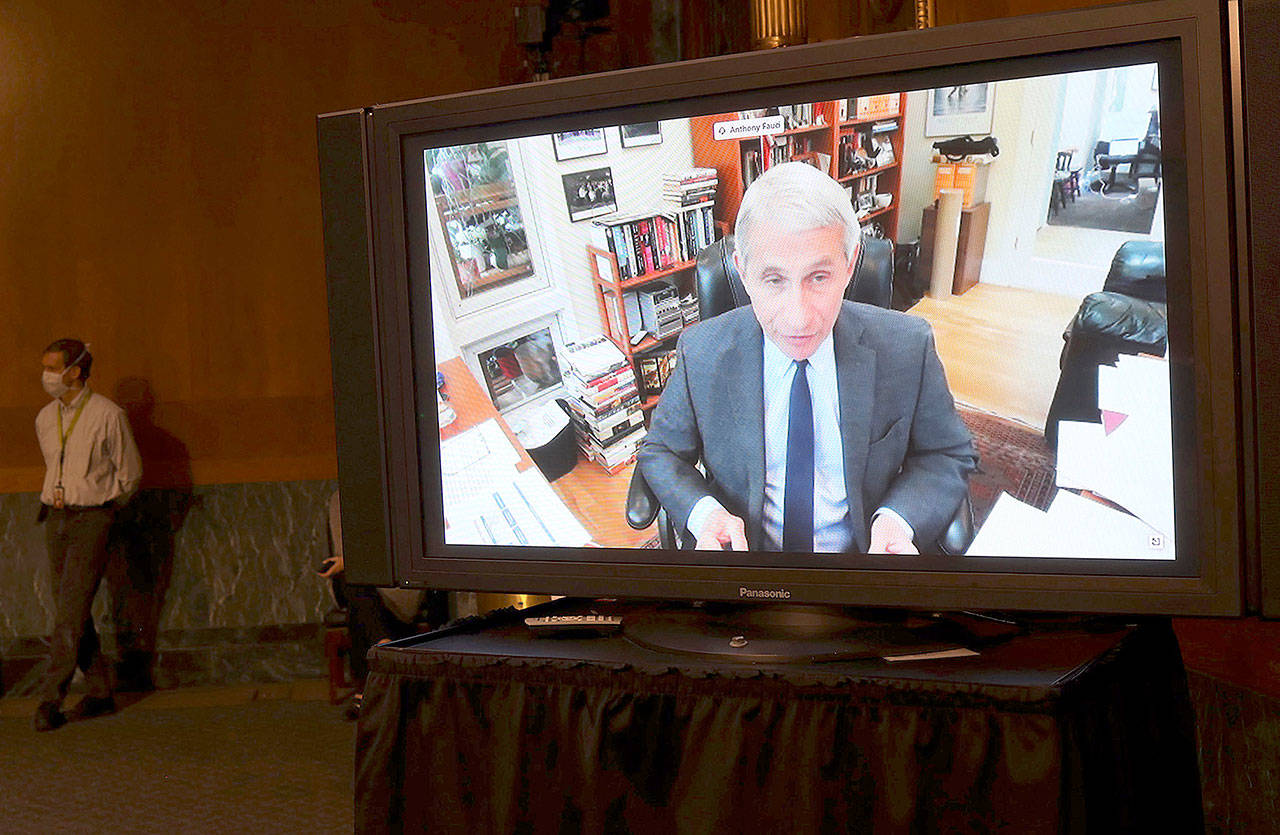WASHINGTON, D.C. — Dr. Anthony Fauci, the nation’s top infectious disease expert, warned Congress on Tuesday that states that push too quickly to reopen businesses and public gatherings during the COVID-19 pandemic could “trigger an outbreak that you may not be able to control.”
Testifying before the Senate Health Committee, Fauci struck a significantly more cautious tone than President Donald Trump, who has pushed for states to quickly end restrictions on business and other activities that were imposed to blunt the spread of the virus.
“The consequences could be really serious,” if states move too fast, Fauci told the panel.
“My concern is that if states or cities or regions in their attempt, understandable, to get back to some form of normality disregard to a greater or lesser degree the checkpoints that we put in our guidelines … there is a real risk that you will trigger an outbreak that you may not be able to control.”
That “paradoxically will set you back, not only leading to some suffering and death that could be avoided , but it could even set you back on the road to trying to get economic recovery because it would almost turn the clock back,” he said.
The main checkpoint in the guidelines, Fauci noted, is a 14-day decline in cases. Many of the states that have aggressively moved to lift restrictions on business have not achieved that.
Earlier, Fauci told senators that the U.S. has “multiple shots” at developing a vaccine for preventing the coronavirus and that researchers hope to know by winter if at least one of the candidates will work.
At least eight vaccine candidates are in development, Fauci said, but he warned that efficacy of the potential vaccines remains an issue and that “negative consequences” are also a concern.
Expecting a vaccine or treatment to be available by the time schools reopen in the fall would be “a bridge too far,” he said.
Fauci testified remotely because he is partially self-quarantining after contact with a White House staff member who tested positive for the virus. The committee chair, Sen. Lamar Alexander, R-Tenn., also participated remotely because one of his staff members has tested positive. Several other senators also participated remotely.
Opening the hearing, Alexander said the country still needs more “widespread testing” —a day after Trump said the testing problem had been solved.
“What our country has done so far on testing is impressive, but not nearly enough,” Alexander said.
Alabama, Kentucky, Maine, Mississippi, Missouri, Nebraska, Ohio, Oklahoma, Tennessee and Utah are among the states that have moved to reopen large parts of their economies but have not met the 14-day downward trajectory in new cases or positive test rates.
Besides Fauci, of the National Institutes of Health, the other experts testifying include FDA Commissioner Dr. Stephen Hahn and Dr. Robert Redfield, head of the Centers for Disease Control and Prevention —both in self-quarantine —and Adm. Brett Giroir, the coronavirus “testing czar” at the Department of Health and Human Services.
The U.S. has seen at least 1.3 million infections and nearly 81,000 confirmed deaths from the virus, according to a tally by Johns Hopkins University. Fauci said the actual death toll is “likely higher.”
In New York City, for example, “there may have been people who died at home … who were not counted.”


